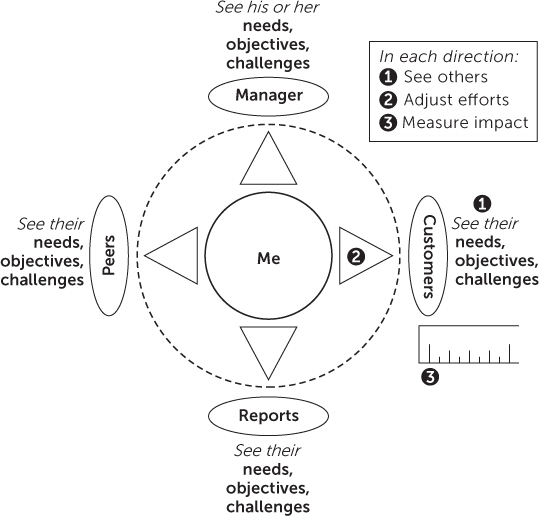Better Mindsets

What is a Mindset?
Your mindset is a set of beliefs that shape how you make sense of the world and yourself. It can influence how you think, feel and behave in any given situation, including how you consider and treat others in society.
Because of its far-reaching effects, adopting a good and effective mindset can be a leveraged method to shape your behavior to success.
I have collected a list of mindsets that I resonated with the most from my readings and research. Do you have a good mindset to share? I would love to hear about it.
Growth Mindset (vs Fixed Mindset)
People with a growth mindset believe that their most fundamental abilities can be developed through dedication and hard work - intelligence and talent are just the starting point. This point of view fosters a love of learning as well as the resilience required for great success.
On the other hand, people with a fixed mindset believe that their essential qualities, such as intelligence or talent, are simply fixed traits. Instead of developing their intelligence or talent, they spend time proving themselves - in the classroom, in their careers, and their relationships. Rather than working on the relationships themselves, they hope for everlasting love in their relationships.
In her book, Mindset, Carol Dweck advocates adopting the growth mindset, the passion for learning and development instead of hunger for approval, to achieve success. The human potential is unknown, and it's impossible to predict what years of passion, toil, and training can accomplish.
Even in the growth mindset, failure can be a painful experience. However, it does not define you. It is a problem that must be addressed, dealt with, and learned from.
Abundance Mindset (vs Scarcity Mindset)
Coined by Stephen Covey in his best-selling book, The 7 Habits of Highly Effective People, he compared the abundance mindset and the scarcity mindset.
People with a scarcity mindset tend to see life as having finite opportunities and resources as if there were only one pie available. And if someone gets a big piece of the pie, it means less for everyone else. When someone wins, everyone else loses. The scarcity mindset is life's zero-sum paradigm of life.
In comparsion, an abundance mindset refers to the paradigm that there is plenty of opportunities and resources out there for everybody. It flows out of a deep inner sense of personal worth and security.
This mindset doesn't see good things like success, joy, fulfillment, or even profits as rare commodities. Instead, it knows there's always plenty for everyone. When you realize there's always more value to be had, it's easier to look for ways to collaborate on attaining it.
Covey believes an abundance mentality, together with a character-rich in integrity and maturity, forms the basis of creating win-win situations. The win-win paradigm ditches competition in favour of collaboration. It seeks outcomes that benefit everyone involved.
An abundance mindset allows you to see more in your life: more options, choices, and resources. One Harvard study discovered that when we focus intently on one thing, other possibilities that are right in front of us can go completely unnoticed. Start training your mind to relax its focus and create a broader awareness. What would you do if you had all the time and money in the world and you knew you couldn't fail? Such questions will assist you in broadening your horizons.
Outward Mindset (vs Inward Mindset)
The Outward Mindset is a way of thinking introduced in the book, The Outward Mindset by the Arbinger Institute.
The key idea of developing an outward mindset is to learn to see beyond ourselves.
A hallmark of this way of working focuses on the needs, objectives, and challenges of those toward whom one has responsibility. Those who work with an outward mindset accept responsibility for their influence on the outcomes of their reports, customers, peers, and managers. They hold themselves fully accountable for their overall impact on the organization's results.
The simple way to remember the Outward Mindset is the SAM acronym:
- See others
- Adjust efforts
- Measure impact

On the other hand, people with an inward mindset behave in calculated ways to benefit themselves and pursue self-focused objectives.
In my opinion, the outward mindset is similar to the empathetic mindset that Christopher Hadnagy considers as the foundational principle of hacking humans in his book, Human Hacking.
According to Hadnagy:
"To influence others to obtain what you want, cultivate an empathetic mindset. You must make a habit of getting outside of your own head, imagining what the other person is thinking and engaging with them in ways that respect and address their needs, beliefs, and emotions."
All of us can empathize with others to a greater or lesser extent, and all of us can cultivate that ability by working on it.
Beginner's Mindset
A beginner's mindset is a concept from Zen Buddhism called Shoshin: "having an attitude of openness, eagerness, and lack of preconceptions when studying a subject, even when studying at an advanced level, just as a beginner in that subject would."
According to Shunryu Suzuki in Zen Mind, Beginner's Mind:
"In the beginner's mind there are many possibilities, in the expert's mind there are few."
Even though you have deep knowledge in your field of expertise, you should approach new information with a fresh mind. You should not say, "I already know enough of what X is". We can become so tied up in our knowledge and experience that it becomes difficult to see things objectively. We can't tell the wood for the trees. Always have a beginner's mind.
It also applies when sharing knowledge with others. The curse of knowledge is a cognitive bias that occurs when an individual communicating with other individuals assumes they have the background knowledge to understand. Always put yourself in the student’s position, recall the difficulties you encounter when learning about this new subject. Share the obstacles you have faced and the tips you have to overcome them. Having our personal learning journal helps us retain this information. Take things slowly and share this information in bite-sized formats for better retention.
Scout Mindset (vs Soldier Mindset)
Scout mindset means seeing what’s there as accurately as you can, even if it’s not pleasant.
According to Julia Galef in The Scout Mindset, a scout mindset is the motivation to see things as they are, not as you wish they were.
While intelligence, cleverness, courage, or patience are admirable virtues that a person with excellent judgment possesses, the scout mindset is a trait that belongs at the top of this list.
Imagine that the world is a battlefield – and that on this battlefield, there are two types of people: soldiers and scouts. The soldiers believe their way is only one way of seeing the world. They're ready to attack anything or anyone that contradicts their worldview. Sometimes, we experience the "motivated reasoning" phenomenon, which distorts how we interpret information during our decision-making process. Some pieces of information feel like our allies — we want them to win; we want to defend them. And other pieces of information are the enemy, and we want to shoot them down. Our judgment is strongly influenced, unconsciously, by which side we want to win — and this is ubiquitous.
The scouts have no interest in attacking. Their job is to create an accurate map of the battlefield and establish the facts, regardless of whether they reinforce or contradict what they want to be true. Scouts are motivated by a different emotion: curiosity. They are more likely to express pleasure when learning new information or solving a puzzle. It is also virtuous to test their own beliefs, and they are less likely to say that someone who changes his mind seems weak.
The best way to be right is to be good at being wrong.
Superforecasters are good at prediction because they could gradually change their minds in response to new information. Rather than brushing their mistakes under the rug or rewriting the narrative around them, they would revisit them and reevaluate how they made predictions. This assisted them in learning, allowing them to make more accurate forecasts in the future. The goal is to be "LessWrong".
The key takeaway is that we do not need more instruction in logic, rhetoric, probability, or economics to improve our judgment. rather, we need to change the way we feel — to learn how to feel proud rather than ashamed when we realize we may have been wrong about something, or to learn how to feel intrigued rather than defensive when we encounter information that contradicts our beliefs.
References
Books
- Mindset: The New Psychology of Success by Carol S. Dweck | Goodreads
- The 7 Habits of Highly Effective People: Powerful Lessons in Personal Change by Stephen R. Covey | Goodreads
- The Outward Mindset: Seeing Beyond Ourselves by The Arbinger Institute | Goodreads
- Human Hacking: Win Friends, Influence People, and Leave Them Better Off for Having Met You by Christopher Hadnagy | Goodreads
- Zen Mind, Beginner's Mind: Informal Talks on Zen Meditation and Practice by Shunryu Suzuki | Goodreads
- The Scout Mindset: Why Some People See Things Clearly and Others Don't by Julia Galef | Goodreads